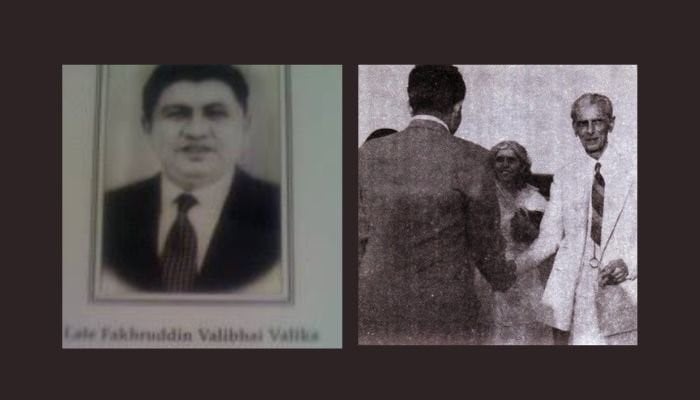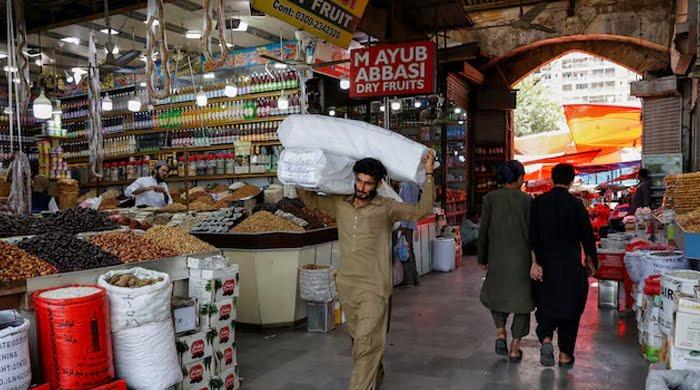A bombing, fall of Dhaka and nationalisation: Rise and fall of Karachi’s Valika family (Part 2)
The tumultuous days of 1969 and early 1970s jolted the family
August 16, 2022

The rise of the Valika Group was astonishing and their sudden fall just as shocking.
From 1940 till early 1970s, the Valikas were idolized by the Gujarati business community for making the right move to leave Godhra, in the Indian district of Gujarat, for Karachi.
Fakhruddin Valika, the eldest in the family, was an undisputed captain of the ship. As a true patriot, his sole vision was to invest in Pakistan, reap the benefits, expand the empire and spend generously on charitable works like schools and hospitals.
Also read: Rise and fall of Karachi’s Valika family (Part 1)
However, the tumultuous days of 1969 and early 1970s jolted the family. Valikas, who had, till now, enjoyed equal opportunities in both the East and West Wings of Pakistan, suddenly found themselves at a crossroad.
The aggravated political situation had started hampering their investment plans.
The family was forced to tighten its belt, which resulted in dissatisfaction among the brothers. Some had long advocated for alternate investments in the hotel industry across the UK, Europe and America. To them, the family had already missed the train as the five star hotels being sold, for relatively cheap, in the early 50s and 60s had almost gone beyond their reach.
For Fakhruddin, it was disloyalty to the country and disrespect to its founder, Muhammad Ali Jinnah. So, instead he encouraged his siblings to visit countries but for either seeking cheap imports or lucrative exports. To him, it was a sin to invest a penny overseas.
Today, this may sound strange, as owning businesses overseas is considered a status symbol, but those were the good old days, when most people followed their family traditions and loyalty to the country was not proven by words but by actions.
Still, remaining steadfast to principles never comes cheap. Eventually, a day came when the Valikas had to pay the price.
It was August 16, 1971. The brothers were deliberating on a new business model at Muhammadi House when a phone call broke the most unexpected news. The caller informed one of the family members that India had bombed their iconic ship Al-Abbas that was docked at the Chittagong port.
Valikas were very much aware of the intensity of Indo Pak war but it was beyond their wild imagination that Delhi wouldn't even spare a civilian cargo vessel.
With Al-Abbas, sank all their hopes of future investments in large shipping vessels.
The family had yet to come to terms with such a huge financial loss when another bombshell dropped.
Right after the fall of Dhaka, all the assets of Valikas, worth millions of rupees, got declared enemy property and hence confiscated. It was an arm twisting ploy to force industrialists and millionaires to remain in Bangladesh. Valikas knew the consequences but turned down Sheikh Mujeeb Ur Rahman’s offer to move their businesses from Pakistan to Bangladesh.
Despite the financial losses, the family had the business acumen to withstand the fall of Dhaka. But the fatal blow had yet to come.
In his speech on December 20, 1971, Zulfiqar Ali Bhutto, the new president, gave a clear hint of how, in the name of reforms, he intended to deal with the economy. With Bhutto’s nationalization policies, the fate of the Valikas was sealed.
On January 2, 1972, Bhutto’s government promulgated an order that removed the boards of directors and managing agencies of the 20 top industries. Overnight, ten major industries were taken over by the regime that was trying to follow the footsteps of the Soviet Union in its economic endeavors.
The industries that were confiscated include iron and steel, heavy engineering, petrochemicals, cement, power generation, gas and oil refineries.
In the next two months, another presidential order followed to nationalize 32 life insurance companies. The relentless attacks on industrialists continued in the next five years.
First, 26 ghee units were nationalized, then 13 banks, 10 shipping companies and eventually small units of cotton ginning, rice husking and flour mills were also taken over.
Zulfiqar Ali Bhutto had done that in the name of fair distribution of wealth. He wanted to break up the undue concentration of economic power and have a happy blend of the public and private sector, but his overestimated actions strangulated the latter.
The nationalization targeted 22 Pakistani elite families, who had till now proclaimed themselves as the backbone of the country’s economy.
Now, their offices were raided, passports seized and names put on the Exit Control List. They were also threatened with consequences if they failed to bring back any foreign currency that they may have abroad.
This was not merely a scare mongering tactic. Three leading industrialists Ahmed Dawood, General retired Habib Ullah Khattak and Fakhurddin Valika were put under house arrest.
These repeated shocks took their toll and Fakhruddin Valika died of a sudden death in December 1972. He had just turned 60.
By then, Fakhruddin had achieved so much both as an industrialist, as well as philanthropist that even The New York Times carried a story of his demise.
For Valikas, the tree that withstood all storms was uprooted. Till the next decade, they remained in shock and utter disbelief as all their dreams were shattered. To put it simply, it was a paradise lost.
Interestingly, not long ago, the family had rubbed shoulders with the then Prime Minister Zulfiqar Ali Bhutto, who even attended family weddings of Valikas. The only disagreement had emerged when Bhutto insisted that leading industrialists financially support his newly formed Pakistan People’s Party.
For Valikas, accepting the socialist agenda was not an issue but they had loyalties to the Muslim League. They never knew that one day, that too will come to haunt them.
So, after the demise of his father, when Kamaruddin Valika approached Bhutto to look into the ‘victimization of Valikas’, he only found himself at a dead end.Yet, he continued to plead his case at every possible platform.
With the coup d’état of General Zia Ul Haq, in 1977, a new ray of hope came for all industrialists including Valikas.
Zia was, basically, an antithesis to Bhutto’s socialist ideologies. The dictator had enforced Islamization of the economy and denationalized industries. He even introduced laws banning nationalization in the future.
Like others, Valikas too were offered to buy back their industries but the bids were too high.
They were ‘old school people’ living in the memories of the golden days when Pakistan was created and most of the people took pride to uphold principles. Now, the files needed to be peddled and hands greased.
Other factors too played their part and as a result, the remaining three sons of Valibhai couldn’t swim with the tide.
Najjamuddin Valika, who once got elected on Muslim League ticket as member of Sindh Assembly from Karachi, quit politics. Saifuddin devoted himself to social work and sports.
One wonders if the Valikas will reemerge and reach for their past glory?
I put these questions to an old man from the Memon community who had witnessed the rise and fall of many such dynasties. Looking at the magnanimous Valika Champers that has served as the fabled headquarters of the conglomerate, at New Chali, he replied: ‘You don’t paint a peacock’s egg. The colors are in the genes.’











